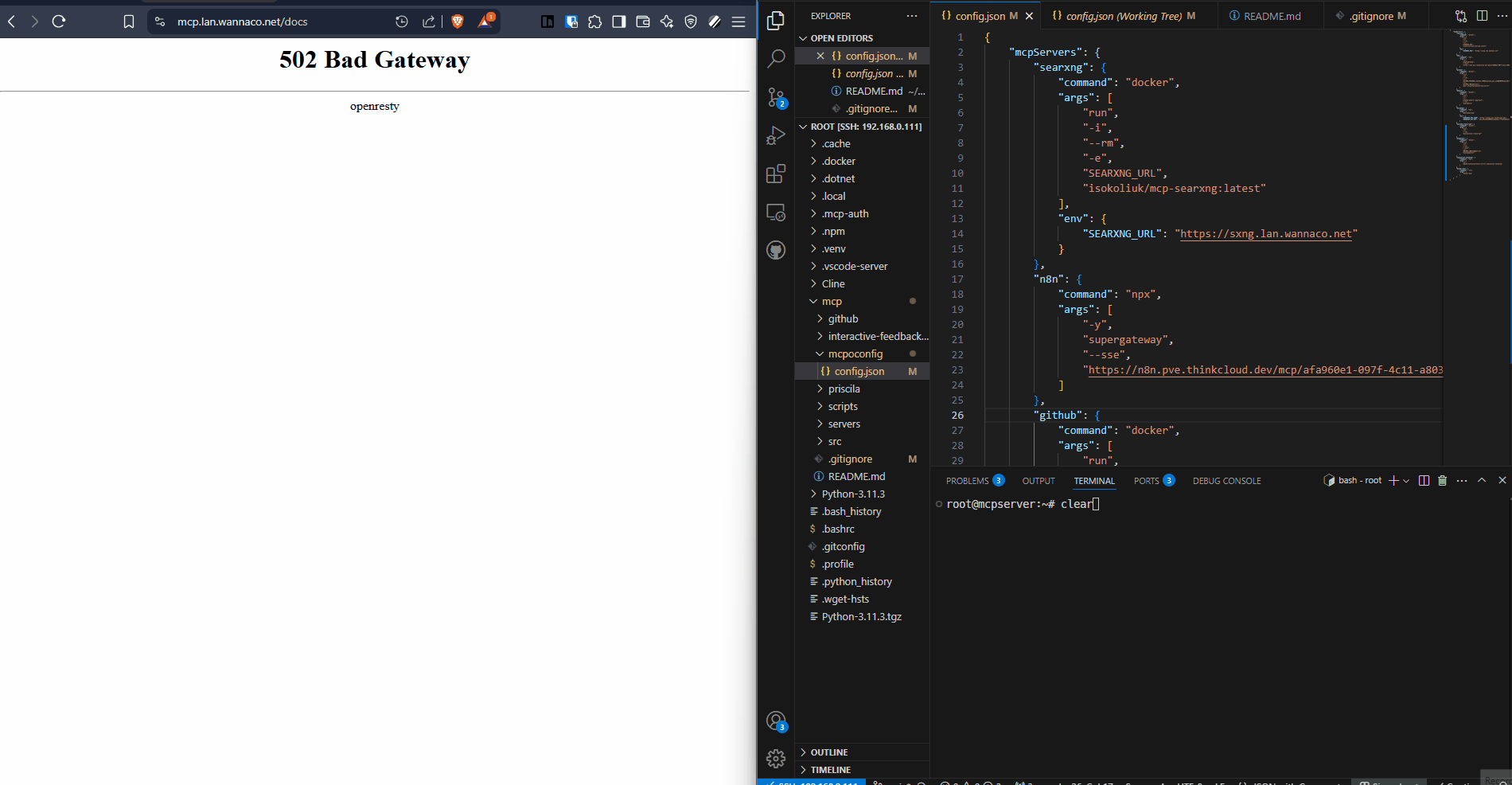Bridge the Gap Between LLMs and Business Tools: Enhance AI Capabilities, Minimize Costs, Maximize Control with Open-Source Solutions.
Large Language Models (LLMs) hold immense potential for transforming business operations, from automating communication to analyzing vast datasets. However, the real power of LLMs is unleashed when they can interact with your existing business tools and data sources – querying databases, sending emails, updating CRM records, or fetching real-time information. The challenge lies in securely and efficiently connecting these sophisticated AI models to your internal and external services.
Open WebUI, a leading open-source user interface for LLMs, coupled with its MCPO (Model Context Protocol to OpenAPI Proxy) component, provides a powerful, flexible, and controllable solution to this challenge. By standardizing how LLMs access external tools, Open WebUI and MCPO enable deeper AI integration, aligning perfectly with our commitment to providing open-source solutions that help you minimize costs and maximize control over your technology stack.

What is Open WebUI?
Open WebUI is a user-friendly, self-hosted web interface designed for interacting with various Large Language Models. It provides a clean, intuitive chat interface, allowing users to easily communicate with different LLMs running on their infrastructure. Being open-source and self-hostable, Open WebUI offers significant advantages in terms of data privacy, security, customization, and cost-effectiveness compared to proprietary cloud-based alternatives.
The Need for LLM Tooling and Integration
While LLMs are powerful language generators, they often lack access to real-time information or the ability to perform actions in external systems. This is where the concept of “tooling” or “function calling” comes in – enabling LLMs to use external functions or APIs to:
- Fetch current information (e.g., weather, stock prices, internal database records).
- Perform actions (e.g., send an email, create a calendar event, update a task).
- Interact with specific business applications.
Implementing this tooling requires a reliable and standardized method for the LLM to communicate with these external services.
Introducing MCPO: The Bridge to Your Business Tools
This is where the MCPO (Model Context Protocol to OpenAPI Proxy) component within the Open WebUI ecosystem becomes crucial. The MCPO server (mcpo) acts as a vital link, translating interactions between LLMs (or clients using the Model Context Protocol) and your business tools that expose their capabilities via standard APIs [1].
What is the MCPO Proxy Server?
MCPO is a proxy server provided by Open WebUI that makes it easy to set up and deploy [1]. Its primary function is to transform tools that communicate using the Model Context Protocol (MCP) into services accessible via standard, familiar OpenAPI endpoints [1].
How MCPO Works:
MCPO functions as a proxy system positioned between client applications (including LLM agents) and tools that understand the Model Context Protocol. Its core mechanism involves transforming MCP tools into RESTful HTTP services with standardized OpenAPI interfaces. This architecture allows standard HTTP clients to interact with MCP tools without needing to understand the complexities of the MCP protocol itself.
In essence, MCPO takes a tool designed to work with the MCP protocol and exposes its functionalities as a standard API that any system understanding OpenAPI (a widely adopted standard for describing APIs) can easily consume.
Key Technical Benefits of MCPO:
- Standardization (OpenAPI): By exposing MCP tools via OpenAPI endpoints, MCPO leverages a universally recognized API standard [1]. This makes it significantly easier for developers and other systems to understand and integrate with these tools.
- Enhanced Accessibility: MCPO allows standard HTTP clients, arbitrary LLM agents, and other applications to interact with MCP-based tools without requiring them to have native support for or understanding of the MCP protocol itself .
- Facilitates LLM Tool Use: Enables LLMs utilizing the MCP or similar protocols to access a wider range of tools, especially those specifically built or adapted to use MCP, through a standard API layer.
- Simplified Integration: Developers can integrate LLM tooling by interacting with familiar RESTful HTTP services defined by OpenAPI specifications, rather than needing specialized MCP client libraries.
- Interoperability: Promotes interoperability between different LLMs, tools, and client applications by standardizing the communication interface.
The Strategic Advantage: Deploying Open WebUI & MCPO (Self-Hosted) with Us
Implementing Open WebUI and MCPO through our self-hosted open-source solutions offers compelling business advantages, embodying the “Minimize Costs, Maximize Control” principle:
- Maximized Security & Data Privacy: When connecting LLMs to your internal tools via MCPO, the entire interaction happens within your secure infrastructure. Your sensitive data remains on your servers, never exposed to third-party cloud services during the tool interaction process.
- Cost Efficiency: Leverage powerful open-source technologies like Open WebUI and MCPO to build sophisticated AI applications without the high per-user or per-request costs associated with proprietary AI platforms and their tooling features. This dramatically drives down licensing costs.
- Complete Control & Customization: You control the deployment environment, configuration, and scaling of both Open WebUI and the MCPO server. Adaptability, extensibility, and freedom from vendor lock-in are fundamental benefits. You can integrate MCPO with your unique, internal tools.
- Seamless Integration Ecosystem: Deploy Open WebUI and MCPO alongside other self-hosted open-source business tools we offer. This creates a cohesive, controllable ecosystem where your AI capabilities are deeply integrated with your core business processes via standardized APIs.
- Dedicated Expert Support: Benefit from our expertise in deploying and managing Open WebUI and MCPO, ensuring a robust, secure, and performant environment for your LLM interactions and tool integrations.
- Rapid Deployment: Get your LLM interface and tooling integration layer up and running quickly within your controlled environment.
Real-World Applications:
With Open WebUI and MCPO, you can build powerful business applications where LLMs:
- Query your internal database via a tool exposed through MCPO to answer user questions with real-time data.
- Interact with your internal ERP or CRM system’s API (exposed potentially via an MCP wrapper and then MCPO) to retrieve or update information based on user requests.
- Utilize specialized internal calculation or analysis tools made available via MCPO.
- Search internal documentation systems through an MCPO-enabled interface.
Conclusion:
Open WebUI provides an accessible and controllable interface for your LLMs, while MCPO provides the essential link to connect these powerful AI models with your critical business tools via standardized OpenAPI. Together, they empower your organization to unlock the full potential of LLM-driven automation and intelligence within your own secure and cost-effective infrastructure. By choosing Open WebUI and MCPO, you gain the flexibility, security, and control needed to build the next generation of AI-enhanced business processes.
Ready to integrate AI deeply and securely with your business tools?

